
Politics
07:09, 22-Sep-2017
Rudd hails merit of China's 'double suspension' proposal on DPRK
By Wang Lei
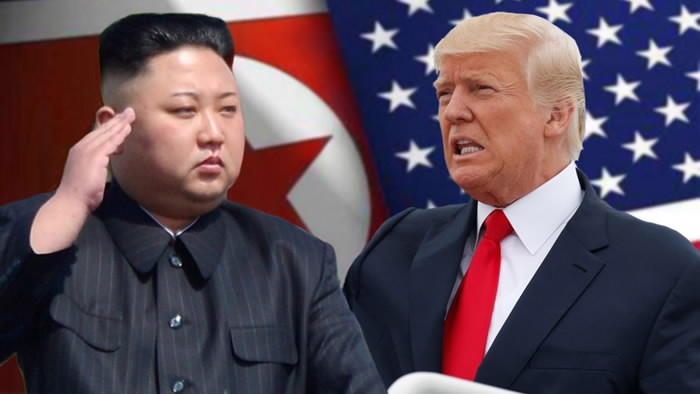
China's "double suspension" proposal on the DPRK crisis has "some merit" because it can "at least buy some time" for peace talks between Washington and Pyongyang, said Kevin Rudd, president of US-based think tank Asia Society Policy Institute and former prime minister of Australia.
Rudd made the remarks during an interview with the Australian Broadcasting Cooperation (ABC) on Wednesday, after US President Donald Trump threatened to "totally destroy" the DPRK. The former Australian prime minister believed the possibility of a formal US military strike against the DPRK had risen to 20-25 percent.
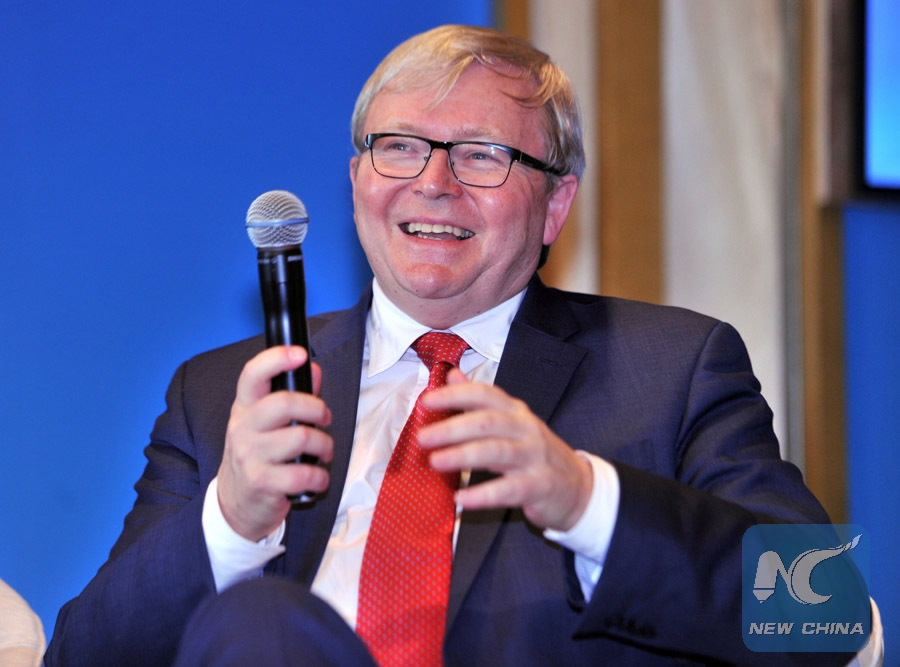
Former Australian Prime Minister Kevin Rudd. /Xinhua Photo
Former Australian Prime Minister Kevin Rudd. /Xinhua Photo
China has been calling for a suspension of DPRK's nuclear and ballistic missile programs in exchange for a halt of large-scale military exercises by the US and South Korea, describing it as the most realistic approach to break the vicious cycle of endless nuclear tests, missile launches and military drills. Beijing has repeatedly urged Washington and Pyongyang to address each other's legitimate security concerns in a balanced way through dialogue.
However, neither side has yet to accept Beijing's proposal.
The DPRK has carried out more than 20 missile tests this year, including the launch of intercontinental ballistic missiles (ICBMs) that could potentially hit the American heartland in July and a powerful hydrogen bomb test in early September. Washington and Seoul have also refused to suspend their joint military drills.
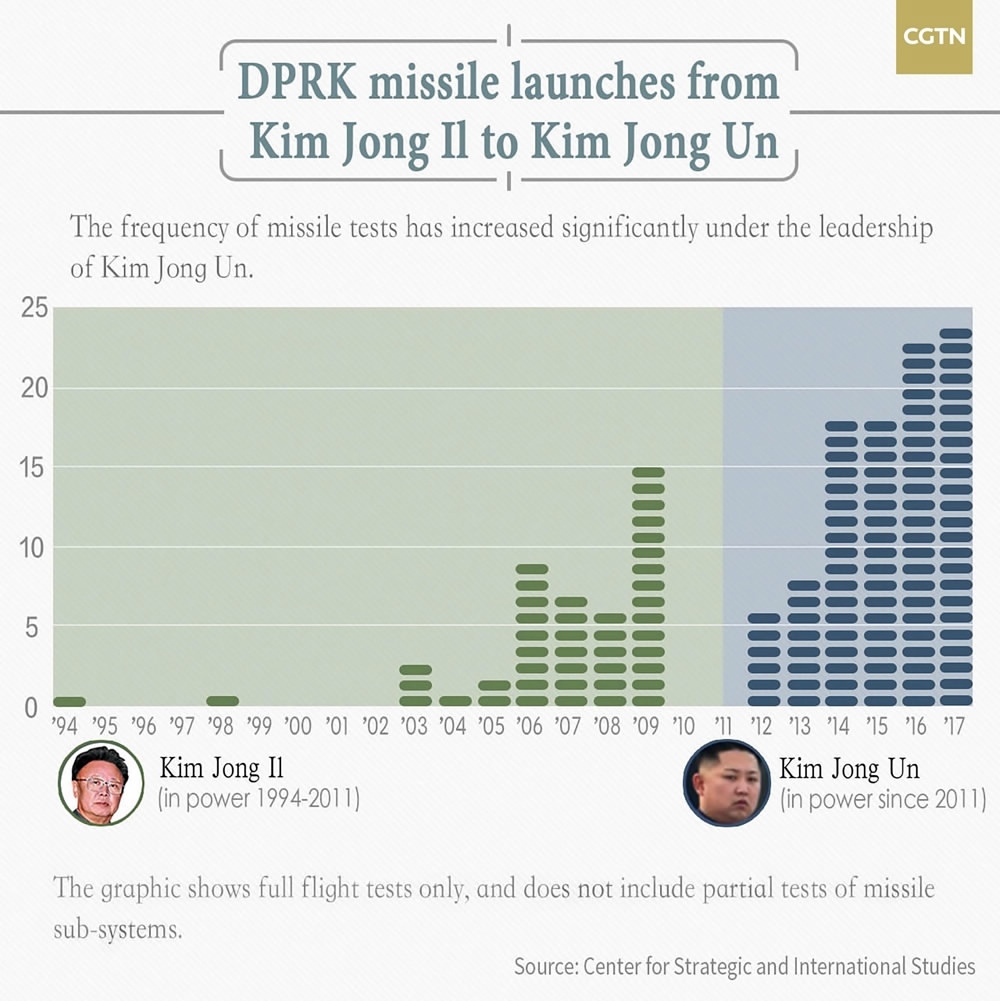
Successive sanctions on the DPRK have not worked so far, Rudd said, suggesting that the "double suspension" proposal was worth a try to break the deadlock.
"I think it got some merit to at least buy some time," he said. "And then secondly, if that does buy some time, you then end up in bilateral, one-on-one negotiations between the United States and North Korea (the DPRK) backed by the Chinese and the South Koreans."
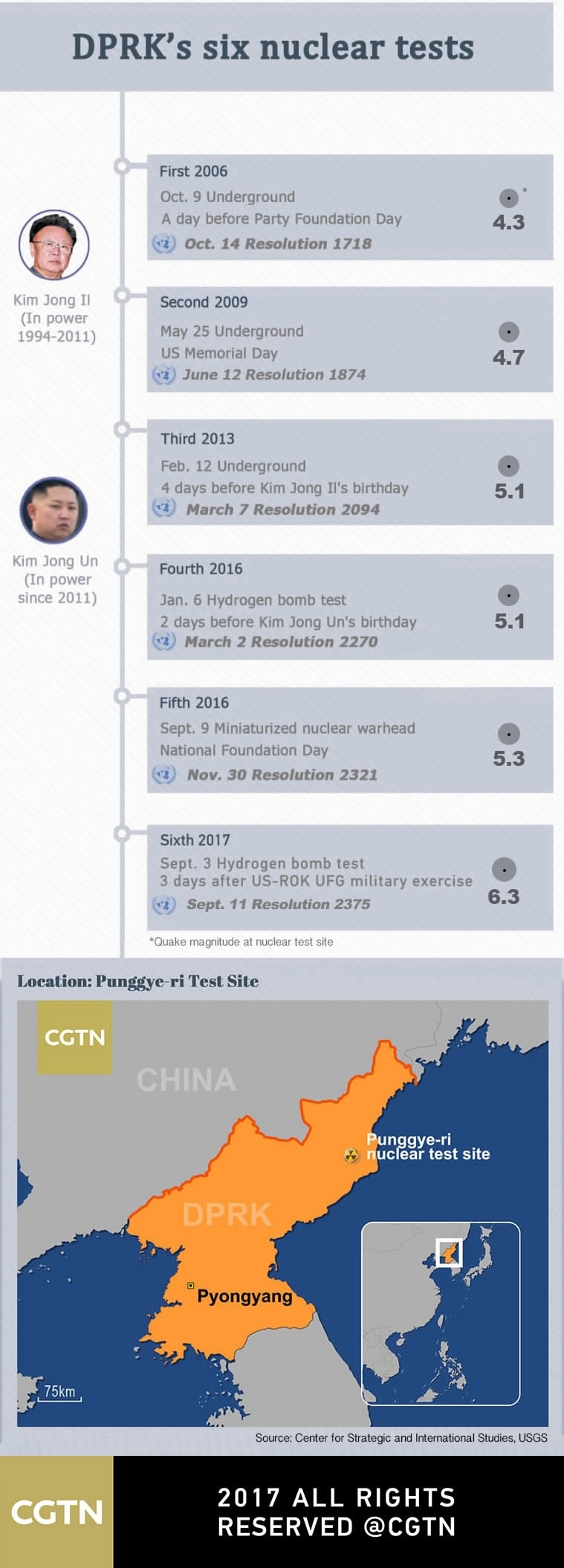
He added that Washington and Pyongyang could negotiate "four or five elements of a long-term grand bargain," including the US diplomatic recognition of the DPRK, a peace treaty to replace the 1953 armistice, Washington's security guarantee for Pyongyang and the DPRK's cessation of its nuclear weapons program. The suggestion echoed the Beijing-proposed dual-track approach of advancing denuclearization and establishing a peace mechanism in parallel.
Rudd is not the only voice in the West to call for a serious consideration of China's proposal. In July, Mark Fitzpatrick, executive director of Washington-based International Institute for Strategic Studies (IISS)–Americas, argued that it was worth "considering the upsides" of the proposal.
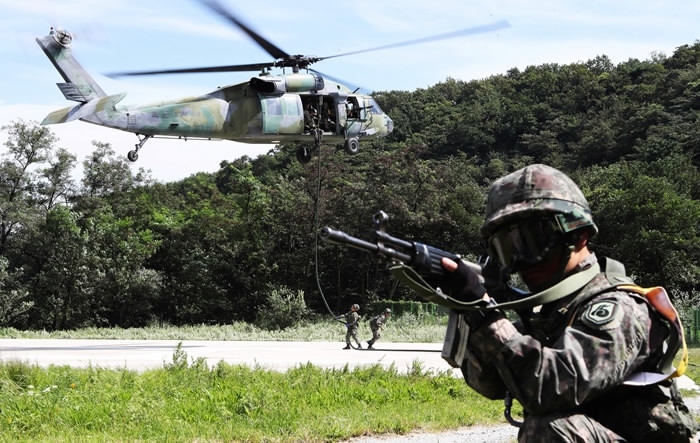
South Korean soldiers take part in a military drill held as a part of the Ulchi Freedom Guardian exercise in Yongin, South Korea, August 29, 2017. /Reuters Photo
South Korean soldiers take part in a military drill held as a part of the Ulchi Freedom Guardian exercise in Yongin, South Korea, August 29, 2017. /Reuters Photo
"Most observers believe that rolling back the nuclear weapons program is unattainable for the time being," he wrote. "If so, then stopping North Korea (the DPRK) from developing better bombs and longer-range missiles is a worthy secondary goal."
The New York Times' editorial board advised Trump to try the approach in an opinion piece on September 6. The US president should "work with China on a diplomatic initiative" that would offer the DPRK a deal "in which Pyongyang would freeze its nuclear and missile tests in exchange for some American concessions, like a reduction in military exercises," the article suggested.

SITEMAP
Copyright © 2018 CGTN. Beijing ICP prepared NO.16065310-3
Copyright © 2018 CGTN. Beijing ICP prepared NO.16065310-3